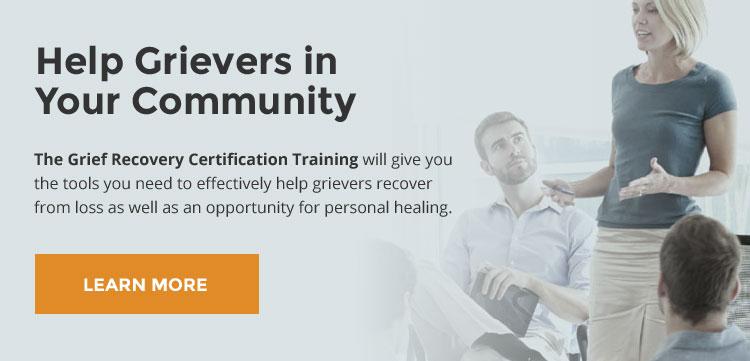
One of the most frequent questions we are asked at The Grief Recovery Institute, by those who are professionally involved in therapeutic practice, is whether there are any studies that show that The Grief Recovery Method is effective. In the past, all we could do is talk about the anecdotal stories shared with us by those grievers who have been positively impacted by this program. After almost 40 years of working with the grieving community, we certainly have heard thousands of stories from those we help.
Now we actually have a university study that supports the value of this program as well. Dr. Rachael D. Nolan and Dr. Jeffery R. Hallam, from Kent State University, recently published the initial findings of their ongoing studies in The American Journal of Health Education. (You will find links to the abstracts of their articles below.) Their findings show that The Grief Recovery Method is an evidence-based process for effectively assisting grievers in dealing with personal emotional loss, no matter the cause.
This finding is significant, since there is no other internationally available support group format that has been the subject of such a study and found to be evidence-based. Better still, this format is designed to be effective in just eight working sessions with grievers. Whether the pain of grief is a result of a death or any other significant emotional loss, this approach is still effective.
There have been many people in the therapeutic community who have employed The Grief Recovery Method as an effective tool in their work. Psychologist Ashley Mielke, of Edmonton, Alberta, for example, made this a cornerstone of her practice. These therapists chose to consider Certification Training in this approach to working with grievers either after a personal loss that they individually experienced, or after looking into this program on their own. Up until the study by Drs. Nolan and Hallam, there had been no independent university study of the value of any such grief assistance community-based programs. The Kent State research is the first such published study on this subject.
This study is based on the eight-meeting support group format for Grief Recovery created by The Grief Recovery Institute. For those who prefer to work with clients in a one-on-one setting, these same materials have also been developed into a seven-meeting format for that purpose. There are GRM Specialists around the world who can provide these programs to support grievers. In addition, there are Advanced GRM Specialists offering the Grief Recovery Method 1-on-1 Online and in the GRM 2-Day Personal Workshops. The Grief Recovery Institute has even developed a six-meeting program specifically designed for those dealing with the trauma and grief of the loss of a beloved animal or pet, which is an often overlooked and downplayed grief producing event.
Whether you are a clinician in therapeutic practice, or even a lay person who wants to effectively assist grievers in finding recovery in as short a time possible, this specialized training is available to you. To learn more about becoming a Grief Recovery Method Specialist, Certified in the Grief Recovery Method by the Grief Recovery Institute, please check out our website.
Now you can be assured that there is an evidence-based training specific to assisting people in effectively recovering for the emotional pain of loss.
You can read the abstracts of the articles in the American Journal of Health Education with the links provided after the article names. (To read the actual articles, you must be a subscriber to the American Journal of Health Education)
Here are a few other articles that you might find of value:
Grief: The 40+ Events That Can Be Triggers
The Grief Recovery Method In Therapeutic Practices
Moving From Victim To Survivor
About the Author:
Stephen Moeller has been a licensed Funeral Director since 1978. Steve established one of the first Grief Recovery Method Support Groups over thirty years ago. Since then, thousands of grievers have gone through his programs. Steve was the Director for Community Relations at Floral Haven Crematory, Funeral Home, and Cemetery in Broken Arrow, OK, prior to resigning to form Grief Recovery Resources, Inc. He also has served on the Tulsa County Task Force on Infant Mortality, the Tulsa Human Response Coalition, and was a member of “Ask the Experts” on Aurora Casket’s Funeral Plan. Steve is a featured grief and recovery speaker at hospitals, churches, civic clubs and many other organizations, but spends the bulk of his working time focused on Certification Trainings.

























Add new comment